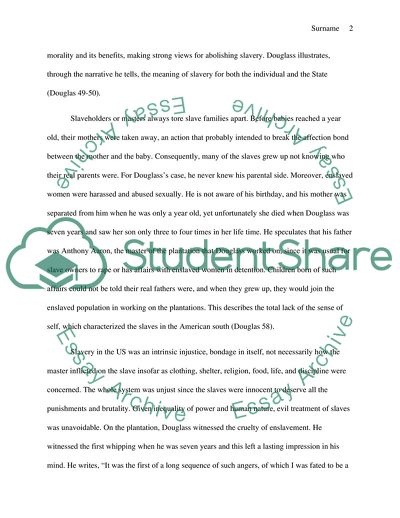Cite this document
(Writers Taking Risks: Fredrick Douglass Term Paper, n.d.)
Writers Taking Risks: Fredrick Douglass Term Paper. https://studentshare.org/history/1814963-writers-taking-risks-fredrick-douglass
Writers Taking Risks: Fredrick Douglass Term Paper. https://studentshare.org/history/1814963-writers-taking-risks-fredrick-douglass
(Writers Taking Risks: Fredrick Douglass Term Paper)
Writers Taking Risks: Fredrick Douglass Term Paper. https://studentshare.org/history/1814963-writers-taking-risks-fredrick-douglass.
Writers Taking Risks: Fredrick Douglass Term Paper. https://studentshare.org/history/1814963-writers-taking-risks-fredrick-douglass.
“Writers Taking Risks: Fredrick Douglass Term Paper”. https://studentshare.org/history/1814963-writers-taking-risks-fredrick-douglass.


